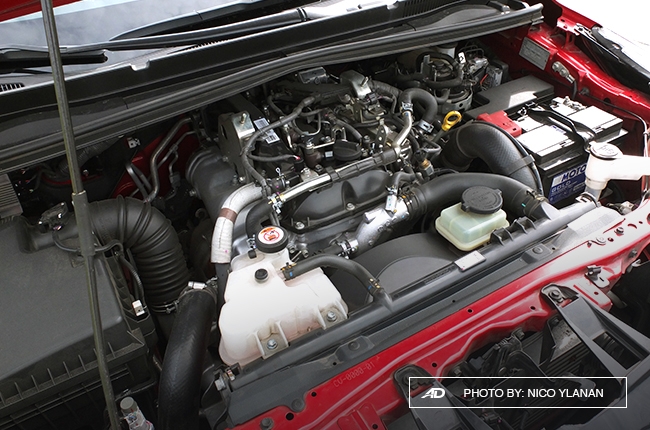
If you’re in the market for your next car, and you’ve already got a list of choices lined up, chances are there’s a vehicle with a diesel on that list. In a country where most live by the pump and are at the mercy of fuel prices, we tend to find ways to save a little more and stretch every liter of fuel. It also doesn’t help that for your everyday car user, being stuck for hours in traffic is all part of a daily routine.

There are a number of advantages to going diesel in our country, and in this article, we’ll be talking about why you should consider the switch. It’s also good to know that our local Philippine market has a healthy appreciation for the diesel engine, and you’ll find that most, if not all, mainstream manufacturers have at least one diesel car in their lineup. We aren’t like some markets where the diesel options are limited to big trucks and commercial vehicles – the Philippines has a good number of segments that offer both a diesel and gasoline variant for a specific car.

Diesels are no longer clunky and unapologetically gruff for daily use; they’ve evolved into very refined and much cleaner engines that fit the bill for sedans, crossovers, and SUVs alike. Diesel engines are also much more robust and reliable than their regular gasoline counterparts, and you’re looking at many years and kilometers of usage before you require an engine overhaul. Parts and replacement components are cheap to replace and easy to service, too.
Diesel engines always make much more torque than their gasoline counterparts, meaning that they tend to accelerate much quicker and are more responsive at low speeds. The truth is that most vehicles are restricted to low RPMs in slow moving traffic, and the powerband for a diesel engine resides in these lower RPMs, making it easy for the engine to get the car moving once the road opens up. That means that, for majority of your drive, you have usable and dependable power each day of the week.

There’s another tradeoff, too. Once a diesel engine gets up to speed, the lower RPMs achieved when cruising translate to better fuel economy. Driven gingerly and with fuel efficiency in mind, diesels can outperform gasoline counterparts when it comes to maximizing each liter. A diesel car on the highway travelling at a steady pace will return impressive numbers every time, and will consistently be far more frugal than gasoline. Compared to gasoline, diesel fuel has always stayed significantly cheaper per liter at fuel stations. Plus, even if you’re out in rural roads where recognizable gasoline stations are few and far between, chances are there’s a small, local pump that has diesel that’s good enough to fill your car up and keep the kilometers going. Of course, always keep an eye out for the proper octane numbers needed by your vehicle.
So if you’re a frequent highway driver or do a lot of longer drives, diesel is your ticket to maximizing your fuel tank. More kilometers per liter also means that you won’t have to visit a fuel station as often. You get more driving for less money at the pump. That seems like a win-win, don’t you think?
Latest Features
-
The difference between wax and polish / Tips & Advice
Confused about whether your car needs a wax or polish? This article will guide you on what they are and what to choose for your car.
-
The 6 things every Ford Ranger must pass before it leaves the factory / Featured Article
Every Ford Ranger, from the base model to the Ranger Raptor, goes through a full inspection process before it leaves the factory. This includes six steps that make sure it’s ready to drive a...
-
Which GAC AION EV is best for your everyday lifestyle? / Featured Article
The GAC AION lineup has something for everyone, maybe you're after space, speed, or just a smooth city drive. Here's a quick breakdown of which model might work best for your day-to-day life...
Popular Articles
-
Cheapest cars under P700,000 in the Philippines
Jerome Tresvalles · Sep 02, 2024
-
First car or next car, the Ford EcoSport is a tough package to beat
Jun 18, 2021
-
Car Maintenance checklist and guide – here’s everything you need to know
Earl Lee · Jan 12, 2021
-
Most fuel efficient family cars in the Philippines
Bryan Aaron Rivera · Nov 27, 2020
-
2021 Geely Okavango — Everything you need to know
Joey Deriquito · Nov 19, 2020
-
Family cars in the Philippines with the biggest trunks
Sep 20, 2023
-
Head to head: Toyota Rush vs. Suzuki XL7
Joey Deriquito · Oct 28, 2020
-
Why oil changes are important for your car
Earl Lee · Nov 10, 2020
-
2021 Kia Stonic — What you need to know about it
Joey Deriquito · Oct 16, 2020
-
Top 7 tips for buying a used car in the Philippines
Joey Deriquito · Nov 26, 2020



